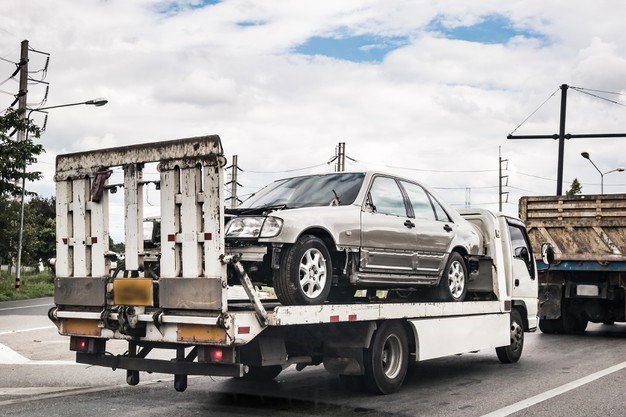Tow trucks are a vital part of road safety. When vehicles break down, are involved in accidents, or need to be moved, tow trucks come to the rescue. However, despite their importance, tow trucks can also be involved in serious and sometimes fatal accidents.
The large size and weight of tow trucks make them particularly dangerous if things go wrong. A study by the National Institute for Occupational Safety and Health (NIOSH) showed that tow truck drivers face a significantly higher risk of injury or death compared to workers in other industries.
Given the severity of tow truck accidents, it may be necessary to hire a tow truck accident attorney to help navigate the legal complexities that follow if you find yourself in such a situation.
How Tow Trucks Work
Tow trucks, as the name implies are designed to tow other vehicles. They come in various types, including flatbed tow trucks, wheel-lift trucks, and hook-and-chain tow trucks. These vehicles can tow cars, SUVs, vans, and large trucks.
Tow trucks come in designs that allow them to carry lots of weight, making them helpful in many situations. However, this ability to handle heavy loads can make them dangerous when accidents happen. A typical tow truck can weigh between 10,000 to 25,000 pounds. When this much weight is involved in a collision, the damage can be catastrophic.
Why Tow Truck Accidents Happen
Tow truck accidents occur for several reasons, many of which are preventable. Below are some of the most common causes of these accidents:
- Driver Fatigue
- Poor Weather Conditions
- Overloaded Trucks
- Mechanical Failures
- Distracted Driving
- Speeding
Injuries from Tow Truck Accidents

Tow truck accidents can lead to severe and life-threatening injuries due to the size, weight, and force involved. When these heavy-duty vehicles collide with other cars or objects, the damage is often catastrophic. Victims of tow truck accidents may suffer from a range of serious injuries that require immediate medical attention and long-term recovery. Below are some of the most common injuries sustained in tow truck accidents
Head and Brain Injuries
Head injuries, such as concussions or traumatic brain injuries (TBI), are common and serious. These can lead to memory loss, cognitive impairment, or permanent disability.
Spinal Cord Injuries
Spinal cord injuries can result in paralysis or chronic pain. These injuries often require long-term rehabilitation and may limit mobility permanently.
Broken Bones and Fractures
Accidents can cause broken bones, ranging from minor fractures to severe breaks that need surgery. Recovery can take weeks or months, depending on the severity.
Internal Injuries
Internal organs like the liver or lungs can be damaged, leading to internal bleeding or organ failure. These injuries may not be visible and require immediate medical attention.
Whiplash and Neck Injuries
Whiplash occurs from sudden head movement, damaging neck muscles. It can cause pain, stiffness, and limited movement, with recovery varying from weeks to months.
Lacerations and Bruises
Broken glass and debris can cause cuts, requiring stitches or surgery. Bruises are common and can indicate deeper injuries to organs or muscles.
Burns
Fires or explosions in accidents can result in burns, sometimes requiring extensive medical treatment and leading to permanent scarring.
Psychological Trauma
Accidents can cause PTSD, anxiety, or depression, requiring therapy. Emotional trauma can be as debilitating as physical injuries.
How to Prevent Tow Truck Accidents
Preventing tow truck accidents requires careful attention to both driver behavior and vehicle maintenance. This involves several key measures, including proper driver training, regular vehicle maintenance, and adherence to road safety rules. Tow truck drivers should be well-trained in operating their vehicles and securing loads properly.
Regular inspections and maintenance help prevent mechanical failures, such as brake or tire issues, that can lead to accidents. Drivers should avoid distractions, drive within speed limits, and remain cautious, especially in bad weather or heavy traffic. Additionally, ensuring adequate rest for drivers can reduce the risk of accidents caused by fatigue, making roads safer for everyone.

Daniel J. Morgan is the founder of Invidiata Magazine, a premier publication showcasing luxury living, arts, and culture. With a passion for excellence, Daniel has established the magazine as a beacon of sophistication and refinement, captivating discerning audiences worldwide.





